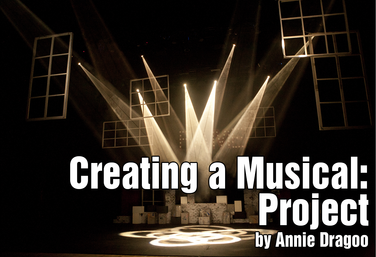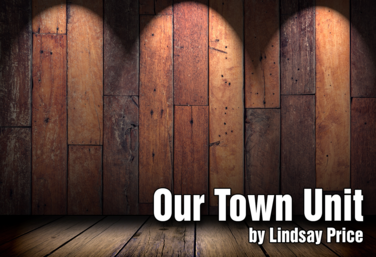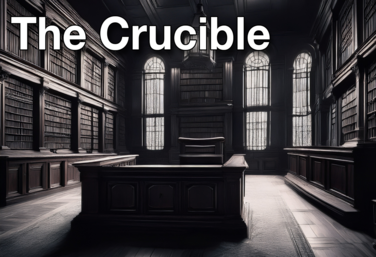View all Standards for British Columbia, Canada
identify effective dramatic forms for representing particular ideas and experiences

UNIT
Creating a Musical: Project
by Annie Dragoo
Want a fun project that has your students collaborating and creating? In this unit by Annie Dragoo, students in groups will write and perform an original musical by adding modern songs to a traditional fairy tale story.
The six lessons take students from writing their script, to choreography and planned movement, to rehearsing, performing and evaluation.
The Rubric will focus on student performance. That means vocal delivery, emotional delivery, blocking/choreography, energy, focus, and characters.
Read More
about Creating a Musical: Project
Read Less
about Creating a Musical: Project

UNIT
Our Town Unit
by Lindsay Price
This is a read, discuss, and apply literature unit. Students will study the play Our Town by Thornton Wilder.
Our Town is often referred to as “nostalgic.” It’s seen as an antiquated look at a moment in time. But this play is called Our Town, not My Town. What’s happening in Grover’s Corners happened in the past, the distant past, in our present, and even in the future. The themes of the play—the ordinary versus universality, the concept of time, the cycle of life, the ignorance of humanity to the eternal—these are just as relevant in the twenty-first century as they were when the play was written.
The purpose of the unit is not to have students recall knowledge about the play. Students will be able to identify, articulate, and dramatize text themes and concepts and compare/contrast these concepts to their own experiences.
Read More
about Our Town Unit
Read Less
about Our Town Unit

UNIT
The Crucible Unit
by Lindsay Price
This is a research, read, discuss, and apply theatrical literature unit. Students will study the play The Crucible by Arthur Miller.
The Crucible is Miller’s most produced play. There are hundreds of high school productions each year, and the play is in many high school curricula. As with every Miller work, there is much to discuss and many rich themes to explore.
The unit is divided into three sections. Each section is a complete set of lessons. You can choose to do all three sections, or if you have your own way to teach the play, you can pick and choose exercises.
Read More
about The Crucible Unit
Read Less
about The Crucible Unit
.png)
PD COURSE
Shakespeare's Toolkit
by Todd Espeland
Todd Espeland has the experience to know that having more tools in your toolbox makes you a better actor. This is especially important when teaching students how to approach Shakespeare. They need help breaking through the language barrier and into the character’s needs and into the character’s thoughts.
The tools that you’ll receive in this course will do just that. The course looks at scansion as a tool for breaking down Shakespeare’s verse, the importance of end of lines, and caesura. Caesura is an inner-line pause which is a lot of fun to play with and really, helps us provide insight to the character’s thoughts and into their needs.
The course provides numerous examples and handouts, and culminates in a performance assignment to use with your students.
Read More
about Shakespeare's Toolkit
Read Less
about Shakespeare's Toolkit

PD COURSE
21st Century Skills Through Devising
by Allison Williams
Allison Williams leads the course: 21st Century Skills Through Devising. This course covers what devising is, why to do it, how to do it, and how your students can master the 21st Century Skills of collaborations and cooperation, critical thinking, creative thinking through devising.
High school is a great place to try devising with your students. But it’s not something you want to throw at your students without any preparation. Framework is important and this course takes you through a number of exercises you can take into the classroom tomorrow to help build a place of physical safety, a place where students work at making a lot of choices instead of waiting for the perfect choice, and a place where students feel comfortable making creative choices. The material also reviews the process of putting together a show from the idea/research stage to editing, to giving feedback.
Your students have what it takes to create their own material, collaborate with each other, and have a unique theatrical experience!
Read More
about 21st Century Skills Through Devising
Read Less
about 21st Century Skills Through Devising

PD COURSE
Director's Toolbox 2: Teaching Students to Direct
by James Van Leishout
Director’s Toolbox 2: Teaching Students to Direct, explores the tools of the actor, rehearsal, space, and design.
The tool of the actor will focus on creating a safe place to play, auditions, and how to communicate with actors.
Rehearsals will look at the whole process from the first meeting to opening night.
The tool of space will explore how to direct in different spaces and how to create focus through stage composition.
Discover how an understanding of the elements of design help student-directors communicate with designers. The final step is a return to self and the mastery of self evaluation.
Read More
about Director's Toolbox 2: Teaching Students to Direct
Read Less
about Director's Toolbox 2: Teaching Students to Direct

PD COURSE
Director's Toolbox 1: Teaching Students to Direct
by James Van Leishout
In this course, James Van Leishout explores why students should direct, and covers the first two tools in the director’s toolbox: self and the script. What background should every director have? Why should they learn to love research? What should happen in the first four reads of a script?
With every step along the way, there will be exercises and activities your student directors can take on before they step into the rehearsal process.
Read More
about Director's Toolbox 1: Teaching Students to Direct
Read Less
about Director's Toolbox 1: Teaching Students to Direct
View all Standards for British Columbia, Canada Standards Master List